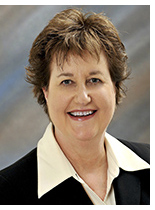Ways that nurse practitioner students self-explain during diagnostic reasoning. Journal Article
Local Library Link: Find It @ Loyola
| Authors: | Burt, L; Corbridge, S; Corte, C; Quinn, L; Finnegan, L; Clark, L |
| Article Title: | Ways that nurse practitioner students self-explain during diagnostic reasoning. |
| Abstract: | OBJECTIVES: An important step in mitigating the burden of diagnostic errors is strengthening diagnostic reasoning among health care providers. A promising way forward is through self-explanation, the purposeful technique of generating self-directed explanations to process novel information while problem-solving. Self-explanation actively improves knowledge structures within learners' memories, facilitating problem-solving accuracy and acquisition of knowledge. When students self-explain, they make sense of information in a variety of unique ways, ranging from simple restatements to multidimensional thoughts. Successful problem-solvers frequently use specific, high-quality self-explanation types. The unique types of self-explanation present among nurse practitioner (NP) student diagnosticians have yet to be explored. This study explores the question: How do NP students self-explain during diagnostic reasoning? METHODS: Thirty-seven Family NP students enrolled in the Doctor of Nursing Practice program at a large, Midwestern U.S. university diagnosed three written case studies while self-explaining. Dual methodology content analyses facilitated both deductive and qualitative descriptive analysis. RESULTS: Categories emerged describing the unique ways that NP student diagnosticians self-explain. Nine categories of inference self-explanations included clinical and biological foci. Eight categories of non-inference self-explanations monitored students' understanding of clinical data and reflect shallow information processing. CONCLUSIONS: Findings extend the understanding of self-explanation use during diagnostic reasoning by affording a glimpse into fine-grained knowledge structures of NP students. NP students apply both clinical and biological knowledge, actively improving immature knowledge structures. Future research should examine relationships between categories of self-explanation and markers of diagnostic success, a step in developing prompted self-explanation learning interventions. |
| Journal Title: | Diagnosis (Berlin, Germany) |
| Publisher: | Unknown |
| Date Published: | 2021 |
LUC Authors
-
 16
16Finnegan
Related LUC Article
